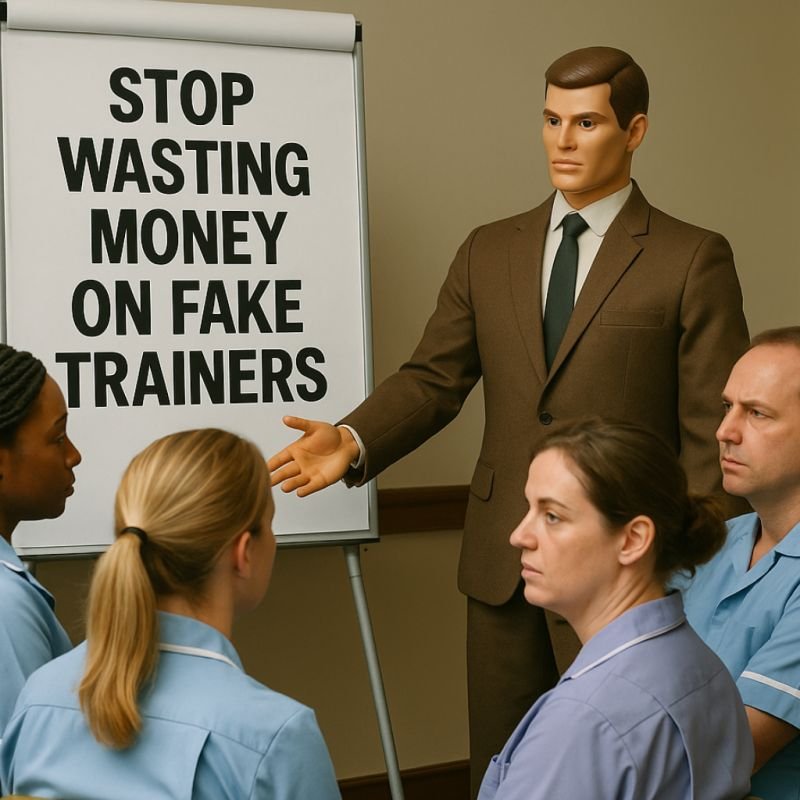It’s astonishing how many so-called “Train the Trainer” programmes within the social care sector are nothing more than subject refresher sessions masquerading as professional training qualifications. These courses often squeeze in topics like manual handling, medication administration, safeguarding, and more – yet neglect the most vital component: the actual skill of training others.
Let’s be clear – subject expertise does not equal training competence.
Without the right instructional skills, so-called trainers end up reciting slides word-for-word, leaving staff disengaged and underprepared for the challenges of care work.
Why This Matters: Inadequate Training = Inadequate Care
When trainers lack the ability to create engaging learning experiences, evaluate understanding, or tailor their approach to suit different learning styles, the outcome is entirely predictable: frontline staff fail to grasp essential care practices. The consequences? Increased errors, compliance failures, and – most alarmingly – a serious risk to the wellbeing of those who depend on quality care.
Tick-Box Training Is a False Economy
Far too many organisations opt for cheap, rapid “Train the Trainer” options just to tick a box on their compliance spreadsheet. But here’s the truth: this short-sighted approach often leads to greater long-term costs – from regulatory breaches to poor inspection outcomes and a decline in care standards.
What Does Truly Effective Training Require?
Delivering high-impact training is a professional discipline in its own right – and it extends far beyond knowing the content. Effective trainers possess expertise in:
💚 Principles of adult education
💚 Designing lesson plans and structured learning pathways
💚 Identifying and addressing diverse learner needs
💚 Managing group dynamics and navigating unexpected scenarios
💚 Giving constructive feedback and evaluating learning outcomes
The Answer? Invest in Quality Trainers
To raise the standard of care through meaningful training, organisations must:
👍🏻 1. Employ Properly Qualified Trainers
Seek out trainers who hold legitimate teaching credentials – at minimum, qualifications like the AET (formerly PTLLS), and ideally, a PGCE or equivalent.
👍🏻 2. Choose Comprehensive “Train the Trainer” Programmes
Ensure any course you invest in teaches how to train – not just what to train.
👍🏻 3. Prioritise Quality Over Low Cost
While cheaper courses might appear cost-effective, they often lead to far more expensive problems down the line.
👍🏻 4. Promote Ongoing Professional Development
Training is never a one-off event. Encourage and support trainers to continually refine their skills and approaches.
The Bottom Line
If your goal is safe, high-quality, and fully compliant care, you need training that’s delivered by professionals with both subject expertise and the pedagogical skills to teach it effectively. Anything less poses a risk that no responsible provider should be willing to take.
Don’t be misled by courses that focus solely on content without equipping trainers with the tools to teach.
Demand professionalism.
Demand impact.
Deliver excellence in care.


